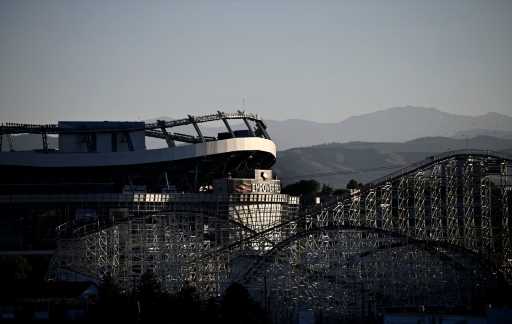Kids in Denver and six other counties in the metro area could soon benefit from billionaire Rob Walton’s purchase of the Denver Broncos.
The Metropolitan Football Stadium District, the division of the state government tasked with building and protecting taxpayers’ investment in the Broncos’ publicly owned field, will soon be distributing more than $41 million of the $4.65 billion Walton and his ownership group paid for the team, Matt Sugar, the district’s director of stadium affairs, confirmed Thursday.
The origins of that multi-million-dollar tax windfall date back to 1998. That was when the 57% of voters in what was then the six-country Denver metro area voted to approve a sales tax extension to build the stadium now known as Empower Field at Mile High.
For their $289 million investment, taxpayers also got some guarantees in the stadium lease and management agreement. That included rights to 2% of the proceeds if late Broncos owner Pat Bowlen and his ownership group sold the team.
Walton’s purchase from the Bowlen Trust is now complete. Last week, the stadium district board voted unanimously to approve a share back amount of just over $41 million. 9News reported on the refund at the time.
That $41 million total is far less than 2% of $4.65 billion. As outlined in stadium district documents, the district had to do some math to calculate the total taxpayers are entitled to. Franchise debt (north of $247 million) was subtracted first as were the Bowlen group’s capital contributions over the years (another $2.4 billion.) The net profit of the sale, roughly $2.05 billion, was then subject to the 2% sharing rate.
The money won’t be going out right away. It has to be divided up between the seven counties and the dozens of cities and towns within them. That requires figuring out just how much those jurisdictions contributed to building the stadium in the first place and then refunding each of them proportionally, Sugar said.
“We’re just trying to work with our accountant and others to make sure we have the right numbers,” Sugar said. “We’re hoping it’s not going to take too long so we should be able to turn it around fairly quickly.”
Sugar wasn’t ready to share how much each jurisdiction might get or a firm date for the money to be sent out but he said Denver, as the biggest city in the state, is likely to get the biggest refund.
The lease agreement does have some specific language about how the sale money should be spent. It’s supposed to go to “youth activities,” Sugar said. He emphasized that does not mean youth sports exclusively but activities for kids generally.
“That’s what we really want everyone to abide by,” Sugar said.
Source: Read Full Article
